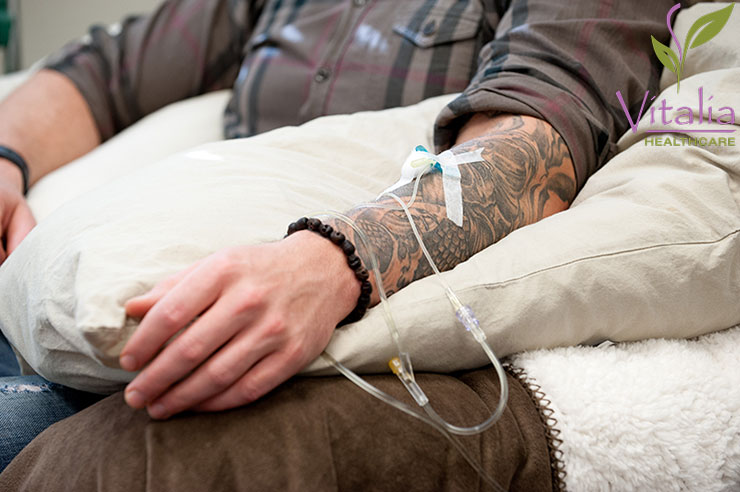 Dr. Tasreen Albhai N.D.
Dr. Tasreen Albhai N.D.
Naturopathic Medical Director
Glutathione is known as the “master anti-oxidant” that is made in the liver from 3 amino acids: glutamate, glucose and cysteine. [1]
Glutathione has many roles in maintaining good health. It performs these 4 most critical functions: [2]
- Age defines
- Anti-oxidant production
- Detoxification
- Energy production
Age Defence
Studies have shown that seniors who live into their 80s have higher levels of glutathione. In contrast, low glutathione levels triggers cell breakdown, increase risk of disease and cell death.[3] Therefore, glutathione is required to maintain healthier cells and mitochondria levels for wellness and longevity.
Antioxidant Protection
Antioxidants work by protecting the body from free radicals or “oxidative” damage. Free radicals are produced when the body creates fuel from the food you eat and these become dangerous byproducts. Glutathione is the “master anti-oxidant” that binds to oxidative compounds that damage cell membrane, DNA, and energy production. It neutralizes oxidants like superoxide, nitric oxide, carbon radicals, hydroperoxides, peroxynitrites, and lipid peroxides. [4]
Detoxification
Our body has the same garbage, waste, and recycling process similar to removing trash on a weekly basis. There are 3 phases of detoxification:
Phase 1: Cytochromes (proteins in the mitochondria) partly process toxins like car exhaust, smoke, alcohol, dioxin, drugs, radiation, heavy metals, pesticides and cancer causing agents. In some cases, phase 1 can turn toxins to even more dangerous free radicals. They are not damaging but they can decrease glutathione, creating an imbalance between phase 1 & 2. [5]
Phase 2: The enzyme, Glutathione-S-Transferase (GST), attaches glutathione to phase 1 byproducts and neutralizes their toxic potential. GSTs make these toxic materials more water-soluble and ready to be excreted. Without glutathione, enzymes and proteins can not efficiently perform their function. [6]
Phase 3: Toxins eliminated from the body via kidneys (urine) and liver (bile).
Energy production
Glutathione protects mitochondria from oxidative damage. When mitochondria is damaged, it slows down and makes less ATP causing sluggishness. Damaged mitochondria are more prone to errors and start to create more free radicals. This creates a cycle of less energy and more damage. [7] Stress increases energy requirement which also causes mitochondria to work harder and produce more free radicals. Thus, restoring glutathione levels can correct energy depletion. [7]
Other functions of Glutathione:
Skin Health
Glutathione decreases skin melanin (pigmentation) but also decreases wrinkles and increases skin elasticity. It stops the tyrosinase enzyme which is involved in making melanin. [8] A study shows glutathione achieves gradual skin lightening effects and will take weeks to develop. [9] Another 4 small scale studies confirmed that glutathione use result in skin lightening. [10]
Immune System
Glutathione helps the immune system stay strong and ready to fight infections. Active glutathione primes white cells (ie. natural killer and T-cells). These are front-line infection fighters. Glutathione enhanced T-cells are able to produce more infection-flighting substances (interleukins 2 and 12, and interferon-gamma) to control bacterial and viral infections. [11] One study found that glutathione doubled NK cells ability to be cytotoxic after 6 months. [12] Glutathione has a direct antibacterial effect and helps macrophages fight bacteria. [13]



